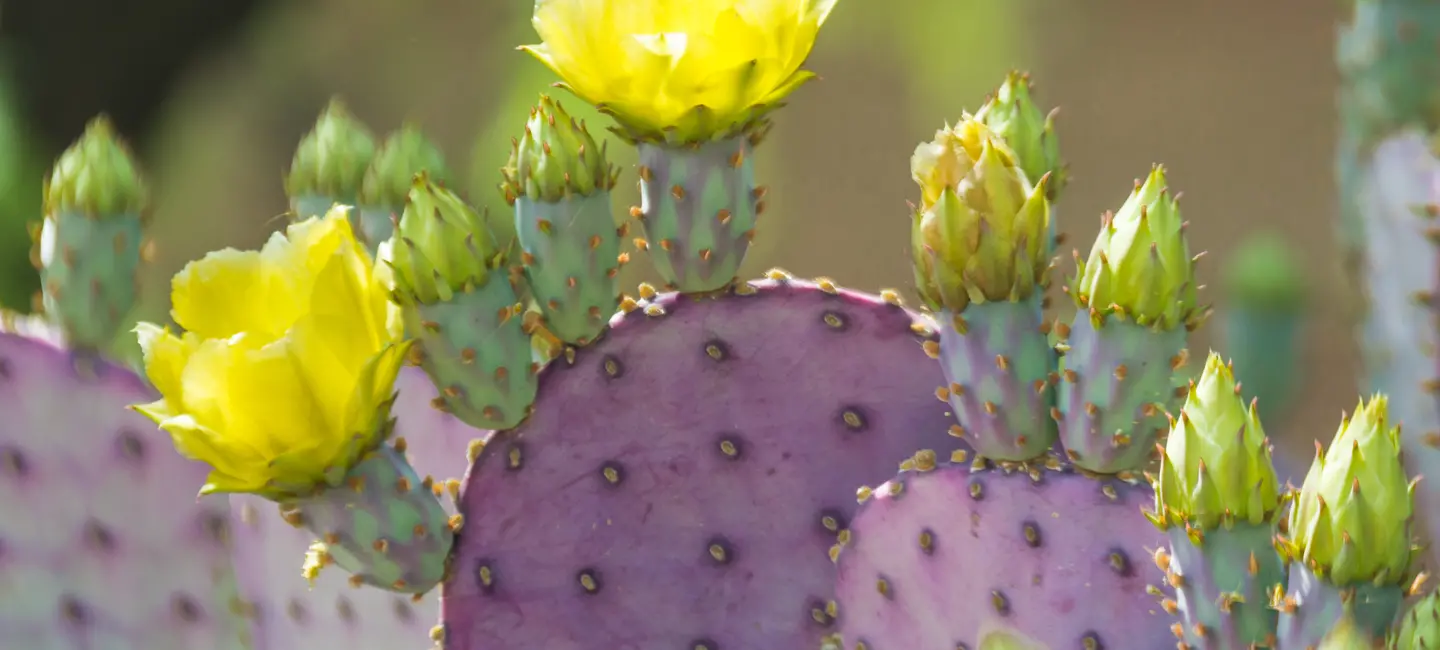
Prickly pear cactus (Opuntia ficus-indica) is a plant native to Mexico. Its fruit and stems are commonly eaten and used as medicine in Mexican cultures.
Prickly pear cactus might lower blood sugar and cholesterol levels by reducing how much the stomach absorbs.
People most commonly use prickly pear cactus for diabetes. It is also used for enlarged prostate, hangover, high cholesterol, and many other purposes, but there is no good scientific evidence to support these uses.
Is It Effective?
NatMed Pro rates effectiveness based on scientific evidence according to the following scale: Effective, Likely Effective, Possibly Effective, Possibly Ineffective, Likely Ineffective, Ineffective, and Insufficient Evidence to Rate.
- Diabetes. Taking prickly pear cactus by mouth can help to lower blood sugar levels after eating in people with diabetes. It's unclear if long-term use can consistently lower blood sugar levels.
There is interest in using prickly pear cactus for a number of other purposes, but there isn't enough reliable information to say whether it might be helpful.
Is it Safe?
When taken by mouth: Prickly pear cactus is likely safe when the fruit and cactus pads are eaten as food. The pads and fruit are possibly safe when taken as medicine for a short period of time. Prickly pear cactus can cause minor side effects in some people, including diarrhea, nausea, bloating, and heartburn.
Special Precautions & Warnings:
Pregnancy and breast-feeding: There isn't enough reliable information to know if prickly pear cactus is safe to use when pregnant or breast-feeding. Stay on the safe side and stick to food amounts.
Surgery: Prickly pear cactus might affect blood sugar levels, making blood sugar control difficult during and after surgery. Stop using prickly pear cactus at least 2 weeks before a scheduled surgery.
Medications for diabetes (Antidiabetes drugs)
Interaction Rating=Moderate Be cautious with this combination.
Prickly pear cactus might lower blood sugar levels. Taking prickly pear cactus along with diabetes medications might cause blood sugar to drop too low. Monitor your blood sugar closely.
Herbs and supplements that might lower blood sugar: Prickly pear cactus might lower blood sugar. Taking it with other supplements with similar effects might lower blood sugar too much. Examples of supplements with this effect include aloe, bitter melon, cassia cinnamon, and chromium.
There are no known interactions with foods.
There isn't enough reliable information to know what an appropriate dose of prickly pear cactus might be. Keep in mind that natural products are not always necessarily safe and dosages can be important. Be sure to follow relevant directions on product labels and consult a healthcare professional before using.
Barbary Fig, Cactus decumanus, Cactus ficus-indica, Cactus Flowers, Cactus Fruit, Cactus Pear Fruit, Figue d'Inde, Figuier de Barbarie, Fruit du Cactus, Fruit de l'Oponce, Indian Fig, Indian Fig Prickly Pear, Indien Figue, Nopal, Nopal Cactus, Nopales, Nopol, OPI, Oponce, Opuntia, Opuntia albicarpa, Opuntia amyclaea, Opuntia cordobensis, Opuntia decumana, Opuntia ficus, Opuntia ficus-barbarica, Opuntia ficus-indica, Opuntia gymnocarpa, Opuntia hispanica, Opuntia joconostle, Opuntia maxima, Opuntia megacantha, Opuntia paraguayensis, Prickly Pear, Spineless Cactus, Tuna Cactus.
Information on this website is for informational use only and is not intended to replace professional medical advice, diagnosis, or treatment. While evidence-based, it is not guaranteed to be error-free and is not intended to meet any particular user’s needs or requirements or to cover all possible uses, safety concerns, interactions, outcomes, or adverse effects. Always check with your doctor or other medical professional before making healthcare decisions (including taking any medication) and do not delay or disregard seeking medical advice or treatment based on any information displayed on this website.
© TRC Healthcare 2024. All rights reserved. Use and/or distribution is permitted only pursuant to a valid license or other permission from TRC Healthcare.
